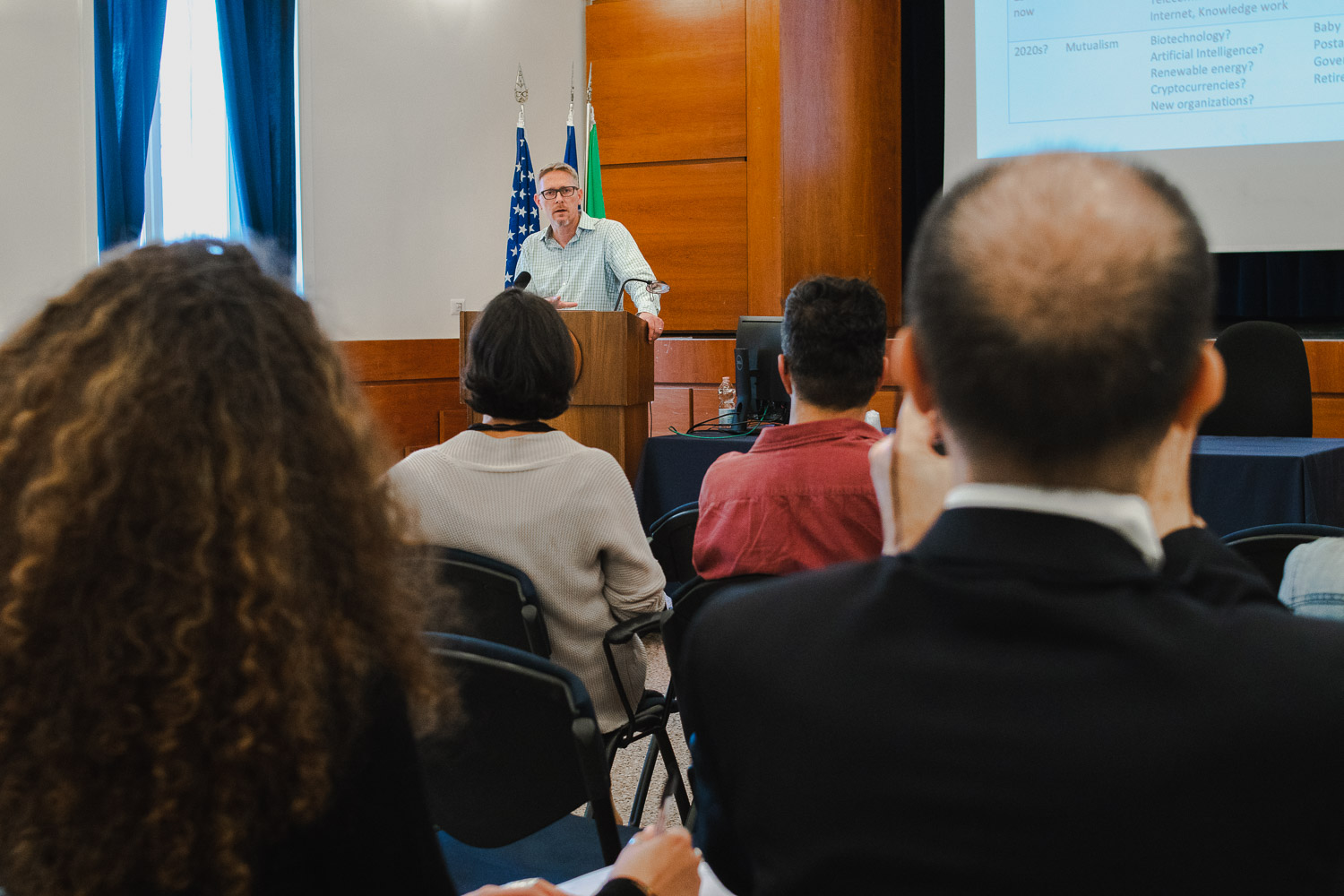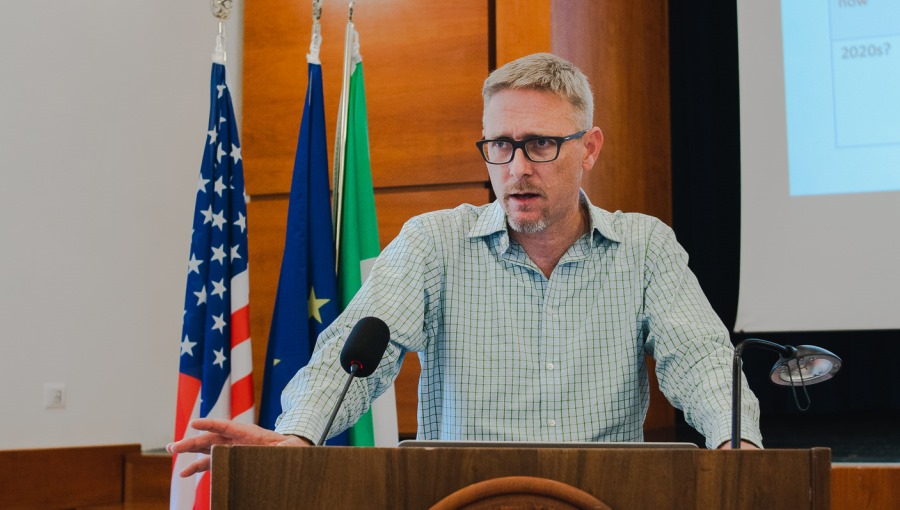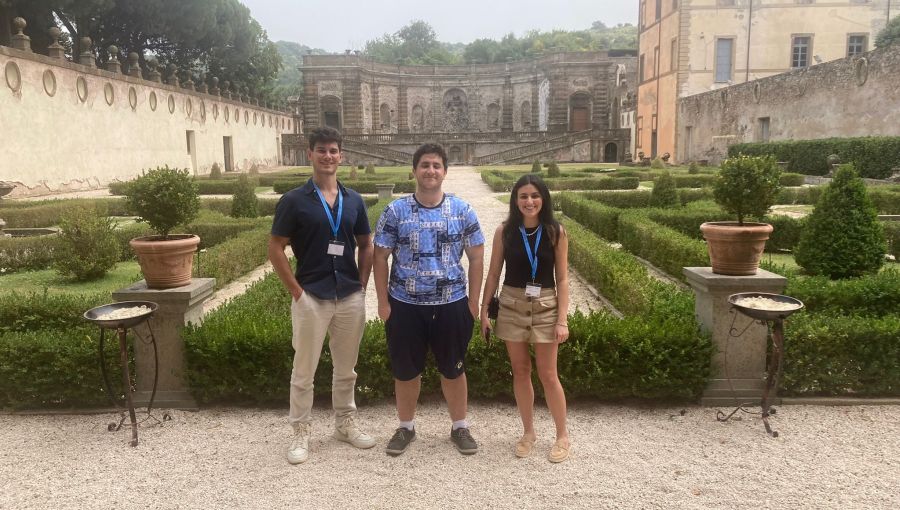Reinventing Capitalism: JCU Welcomes Dr. Nils Gilman
The JCU Department of Political Science and International Affairs, the Department of Economics, and the Guarini Institute for Public Affairs sponsored a talk called Reinventing How to Govern Capitalism on October 11, 2019. The guest speaker was Dr. Nils Gilman, Vice President of Programs at the Berggruen Institute in California, and Deputy Editor of The WorldPost. Dr. Gilman’s areas of expertise include climate change, globalization and geopolitics, international security, political economy, technology and US politics.
Dr. Gilman started his talk by saying that he would only focus on the United States’ history and current situation, but that his ideas could potentially be applied to other countries as well. The current neoliberal economic governance model prioritizes capital accumulation, thus disregarding wages. Economic growth is slow and uneven, which makes it very difficult for the middle class to build wealth. Dr. Gilman explained that it is necessary to transform the way in which assets are distributed, so that everyone could benefit from them.
Most of the wealth in the United States comes from real estate, company stocks or stakes, and corporate assets. The rich control mostly equity and businesses, which often makes them even richer. The middle class is on real estate, but tends to remain on the same level of wealth, without being able to increase it. The poor have no assets, and they have less and less wealth. The overall situation is one of stagnation and inequality, which is a result of the policies that encouraged speculation implemented in the 1970s.
Dr. Gilman identified four waves of technical change and economic governance. The first wave (1860s-1900s) was characterized by the Liberalism model, which revolutionized existing sectors, such as textiles, railroads and factories. The Corporatism model followed (1920s-1960s) and brought benefits to the middle class, who saw an increase in wages and productivity, a stabilization of the housing market, and the introduction of the 30-year fixed mortgage. The third wave is the one we are currently in, Neoliberalism (1970s-present). The Neoliberalism model is characterized by economic recession, low wages, low skilled jobs, and a difficulty to access the housing market, particularly for younger workers.
According to Dr. Gilman, the fourth wave will start in the 2020s, and it will be characterized by the Mutualism governance model, which will promote a divergent ownership structure. For instance, Dr. Gilman suggested that state-owned investment vehicles should be created, and that universal income grants and sovereign wealth funds should be established. He gave the example of Alaska, where every citizen receives a percentage of annual oil sales revenue. Another idea that Dr. Gilman introduced is imposing a tax on online targeted advertising, and having a sovereign fund manage the revenue, which should go to public goods and services. Among other things, Dr. Gilman proposed a patent reform, the use of alternative clean energy and green technologies, and the establishment of a National Investment Bank.
In terms of personal wealth building, Dr. Gilman said that the state should protect its citizens from economic risk. One way to do that would be to reform the public health system, which is one of the leading causes of bankruptcy in the United States. In addition, a universal basic income and retirement funds should be established. The financial revenues from this wave should be distributed in a broad and equitable manner, and should give ordinary people access to wealth creation at its source. The challenge of this wave of economic governance is to transform the concept of ownership and to design new institutions of asset ownership that can benefit as wide a number of people as possible.







